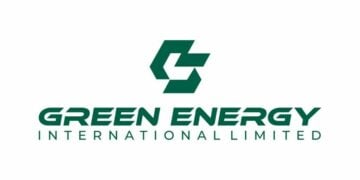Nigeria is actively pursuing the expansion of gas utilisation for power and non-power uses, including cleaner cooking, transportation, and industrialisation, as a transition fuel towards a low-carbon economy.
The country, Africa’s largest oil producer, has set an ambitious target to become a major player in the global gas market. With plans to increase gas production to 10 billion cubic feet per day by 2025, the country aims to leverage its vast gas reserves to drive economic growth, power industries, and transition to a cleaner energy mix.
However, Nigeria’s gas ambitions come with a critical environmental challenge: methane emissions. The expansion of the gas sector will lead to increased extraction and processing, raising significant concerns about environmental, economic, and social risks, including the potential rise in methane emissions, a potent greenhouse gas.
As the second-largest contributor to global warming, methane emissions from gas production, processing, and transportation pose a significant threat to the environment.
Methane, a potent greenhouse gas, has a global warming potential 28 times higher than carbon dioxide over a 100-year time frame. In Nigeria, methane emissions from the oil and gas sector account for approximately 40 per cent of total greenhouse gas emissions.
Stakeholders and campaigners for cleaner energy therefore say while Nigeria’s ambitious gas target offers immense economic opportunities, it’s crucial to prioritise methane emission reduction, to minimise environmental impact.
To put it clearly, they hope that by prioritising methane emission reduction, Nigeria can minimise environmental impact while achieving its gas ambitions.
“Addressing methane emissions is crucial in mitigating climate change and its impacts,” executive director of Centre for Transparency Advocacy (CTA) Faith Nwadishi, said.
Nwadishi has over two decades experience in the oil sector and has been a campaigner for cleaner energy as well as an anti gas flaring activist.
Her concern, along with other key stakeholders, is to ensure that as Nigeria navigates its energy transition, authorities embrace sustainable practices that will ensure a cleaner, more responsible gas sector.
Recently her organisation, the CTA in collaboration with Natural Resource Governance Institute (NRGI) held a workshop to broaden the understanding of Media practitioners and facilitate public discourse on the viability and implications of Nigeria’s plans for utilising gas in non power sectors.
Stakeholders at the workshop called for prioritising methane emission reduction by implementing leak detection and repair programs, and adopting best practices in gas production, processing, and transportation.
Leakages and venting during gas production, processing, and transportation have been identified as significant contributors to methane emissions. According to the International Energy Agency (IEA), Nigeria’s gas sector loses an estimated 1.4 billion cubic meters of gas annually due to leakages and venting.
The CTA executive director therefore said that Nigeria can draw inspiration from countries like the United States, Canada, and Norway, which have implemented successful methane emission reduction strategies. Some of those strategies include establishing and enforcing regulations to limit methane emissions; collaborating with operators to implement Leak Detection and Repair (LDAR) programs and best practices as well as encouraging the use of innovative technologies like drones and sensors for leak detection
Nwadishi emphasised that reducing methane emission has multiple benefits, including reducing a potent greenhouse gas while adding that capturing and utilising methane can generate additional revenue streams for the country.
Both CTA, NRGI and other stakeholders in the gas sector said there is the need for a comprehensive strategy that will lead to a realistic and transparent approach to Nigeria’s gas ambitions, alignment with global commitments, and consideration of the environmental and health impacts of gas utilisation.
A senior programme officer at Natural Resource Governance Institute (NRGI) Tengi George-Okoli, however, decried that over the years, Nigerians leaders have set ambitious, unmet targets and rolled out a series of largely unimplemented plans in the gas sector.
She said, “These include 2008’s Gas Master Plan in 2008; the 2017 National Gas Policy nearly a decade later; and most recently, the 2021 Decade of Gas Policy, which is expected to power more homes and businesses, reduce subsidies by promoting compressed natural gas (CNG) as alternative for transportation fuel for transportation and improve access to clean cooking usage with liquified petroleum gas (LPG). It is also expected to improve gas supply and reduce gas flaring through the Nigerian Gas Flare Commercialisation Programme which has encountered a number of false starts.”
George-Okoli said further, “Whether ramping up gas utilisation is feasible, or indeed the appropriate approach to achieving Nigeria’s energy supply and economic ambitions, is uncertain. What is certain is that global pressure to transition away to cleaner energies and defund fossil fuel projects complicates the process of realising that goal and could lead to wasted investments that jeopardise the economic and energy security of Nigerians in the future.
“Therefore, for Nigeria to right-size its gas plans within these contexts, the Nigerian authorities must develop gas expansion plans sensitive to the increasing constraints (financial, infrastructural, human resource-related) imposed by the energy transition, they could better balance the need to meet domestic energy demand and achieve a sustainable energy future.”
Stakeholders therefore, agree that Nigeria’s gas ambitions offer a promising pathway to economic growth, energy security, and a low-carbon future. However, the spectre of methane emissions looms large, threatening to undermine these gains. To truly harness the potential of gas, Nigeria must prioritise methane emission reduction, embracing sustainable practices, technologies, and international best practices.
By doing so, the country can mitigate climate change impacts, protect public health, ensure energy security, drive economic growth and showcase leadership in responsible gas development.





